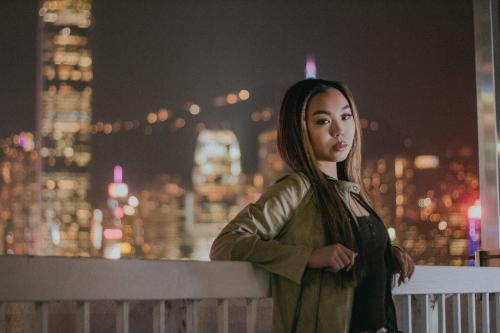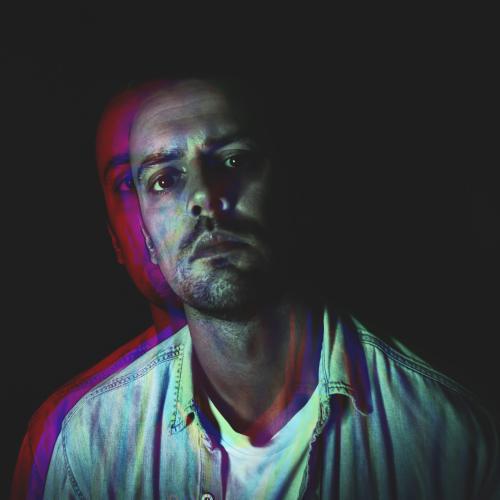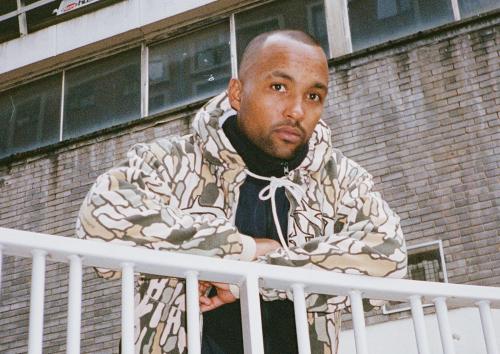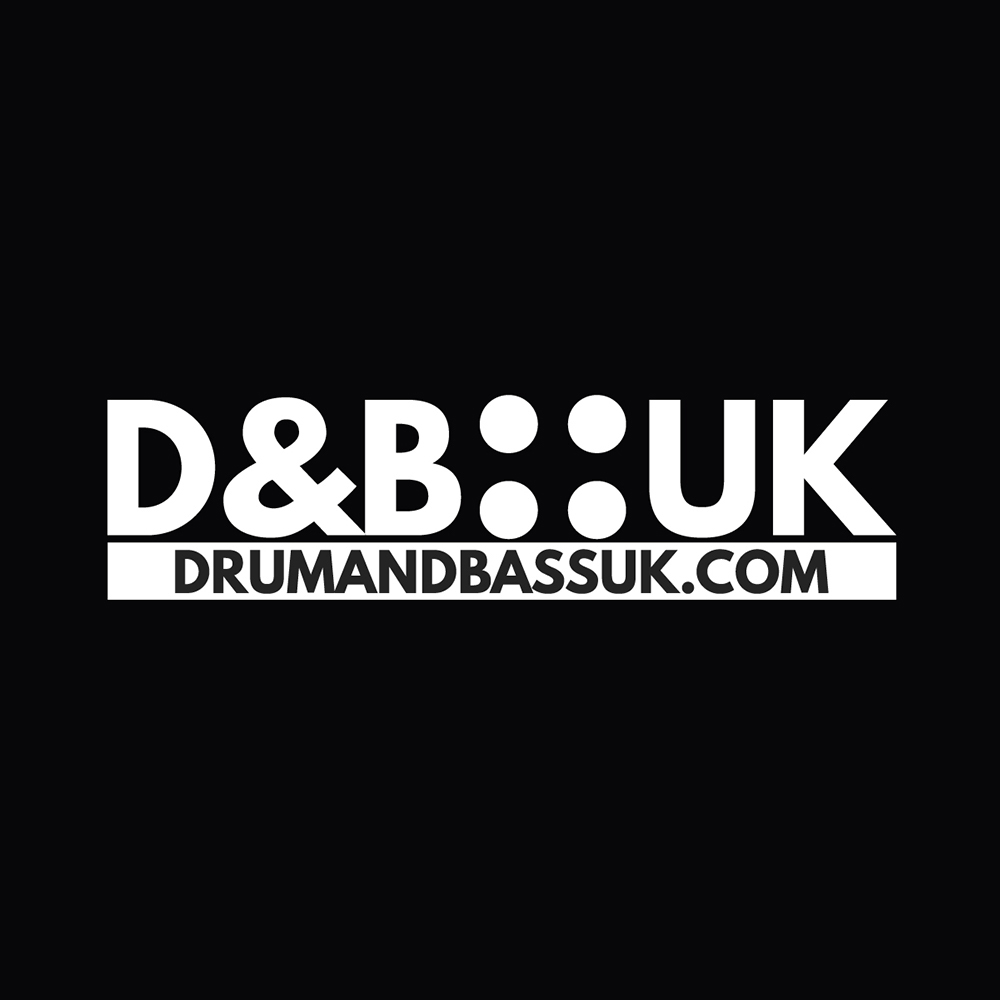Rave Scenes- Edinburgh
“Edinburgh’s a really good hub for connecting the whole of Scotland together,” says Anikonik, local DJ, Nook promoter and former EQ50 mentee. “You could probably fit the whole of the drum & bass scene in Scotland into Bristol.” To put the size of the Scottish scene into perspective, there are fewer people in the whole of Scotland than there are in London – London has a population of nearly nine million, while Scotland only has five million.
That means that, even with more than a hundred miles between Aberdeen and Edinburgh, Scottish heads tend to travel between cities to attend club nights. You’ll see the same faces at Midnight Bass in Edinburgh, Symbiosis in Glasgow, or the Junglism Castle Party in Dundee. There’s even the Jungle Bus, which couriers Aberdonians down to big d&b nights in the central belt.
But in spite of its committed fanbase, drum n’ bass remains an underdog genre in Scotland. “Everywhere else in Scotland is a lot more of a techno culture, really,” says producer Refracta, who plays as a resident with Electrikal and Midnight Bass. Names like Slam, JD Twitch, Optimo, Sub Club and Pure have all helped to put Scotland’s name on the global electronic music map, with Glasgow’s nightlife especially celebrated worldwide for its bustling house and techno scene. It’s one of Scotland’s oddities that, though Glasgow’s is considered the country’s music capital, it’s in Edinburgh that breakbeat has built its strongest enclave.
“Edinburgh’s definitely the drum & bass capital of Scotland,” says Anikonik, who moved down from Dundee with the night she co-promotes, Junglism Scotland, in 2016. She’s far from the only Scottish d&b fan to have gravitated to Edinburgh. Refracta used to mission over to Bongo from North Berwick, a seaside town an hour up the road. Richard Ince and DJ Era ventured up from the Scottish Borders in 2007, before they built their now notorious rig, Electrikal Sound System.
Photo Credit: Ben Glasgow (Lights Out Collective)Scene veteran DJ Kid thinks that the reason why drum & bass has taken off so much more in Edinburgh than elsewhere in Scotland mostly lies with its university students. “Because you’ve got that new influx every year, it’s like this revolving door of students. It means you’ll always have that support,” he says. “If it wasn’t for the amount of English students that were in Edinburgh, there wouldn’t have been a scene over the years.” Nearly a quarter of students admitted to the University of Edinburgh in 2021 were English, and they bring their music tastes with them each year when they come up to study. That’s as true today as it was in the 90s, when DJ Kid was a resident at the one-time Edinburgh institution, Manga.
Scotland didn’t take easily to breakbeat at first, DJ Kid remembers. Unlike the nights that were booking him down south, where he played teeming jungle and hardcore raves, he and Manga founder G-Mac struggled to fill the floor at La Belle Angele. More than once, DJ Kid played to a room of 30 people in a 500 capacity venue. “You just couldn’t get breakbeat and jungle accepted in Scotland,” he says. “The majority of music that was always heard up here was a 4/4 beat.”
But there came a turning point in 1997, when Manga booked Ed Rush to play their first birthday. “We had never had a sellout, and it completely sold out in advance,” says DJ Kid. “The line from La Belle was down the vennel and away up the road on the Cowgate. I remember thinking, ‘This is mad, this is it. This is when it’s finally gonna happen.’ From then on, Manga became a bit of a monster.” Manga was the go-to drum & bass night for the next decade, selling out monthly and bringing up jungle and d&b stalwarts, like Roni Size, Fabio & Grooverider and DJ Marky, until its last party in 2008. “People would come to Manga even if I had my gran on the decks,” says DJ Kid. “It was a big wave that we were on.”
Edinburgh’s drum & bass scene has always tended to have one or two big brands leading the charge. After Manga came Xplicit (which was started by the same team as Edinburgh’s electronic music festival, Terminal V), and then Electrikal Sound System, which remains Scotland’s most recognisable d&b sound system today. It was Mungo’s Hi Fi who first taught founder Richard how to build and switch on the notoriously full-throated blue-horned stacks, after they gatecrashed an early Electrikal free party in Moffat.
“We had these little speakers,” Richard says. “Mungo’s turned up on the Saturday with a sound system. They have full Mungo’s overalls on. Jerome in his French accent was like, ‘Do you need some extra speakers?’ And they just opened the side of the van to half of Mungo’s Hi Fi. They set it up in this barn and absolutely kicked the arse out of it. We actually had to turn the generator off because they wouldn’t stop playing.”
Today, Electrikal can be found powering sets all over the UK, with regular sellout slots in Bristol, bookings at festivals like Boomtown, Outlook and NASS, and now a national tour. “At Boomtown, we had 10,000 people turn up to the Electrikal/Born On Road street party,” says Richard. “I’d say we’re up there as one of the premium drum & bass sound systems, hopefully following in the footsteps of people like Valve Sound System. Obviously, Mungo’s Hi Fi were doing that for the reggae scene as well. We’re flying the flag high for Scotland with Bucky, Irn Bru and haggis-infused dubplates.”
Back in Edinburgh, they’re known for their heavyweight Wall of Bass nights, as well as for packing out Bongo with high profile acts, like Serum, Andy C and Dillinja, or artists on the cusp of breaking out, as with Hedex and Born On Road. For more than ten years, Electrikal have been an essential conduit between Scotland and drum & bass around the UK.
That’s especially important for a scene based hundreds of miles away from the d&b heartlands in London and Bristol, where booking big names comes at a high price. Travel is automatically more expensive, and DJs need putting up in accommodation too. As costs rack up, they can get too prohibitive for smaller promoters.
“If you’ve got an act coming up from Bristol, you’re talking £200-300 return train tickets for one person,” says Anikonik. “That’s a joke. And then hotels in Edinburgh are extortionate. Unless you’ve got a really big following, you can’t afford to do that kind of stuff, which is unfortunate.”
“To be a promoter in Scotland right now, you need some serious cash behind you,” Richard adds. “Even the small to mid-sized acts have doubled or tripled their fees over lockdown, because they’re trying to make up for it, and it’s been making events harder and harder to put on.”
But, in a roundabout way, these setbacks may actually have benefited the local-led culture in Edinburgh, which can be found out in full force every Tuesday night at Midnight Bass. “Midnight Bass is the backbone, as far as I’m concerned, of the scene here,” says DJ Kid. “To have a weekly night that plays drum n’ bass in Edinburgh, it’s phenomenal.”
“There’s literally DJs I’ve never even heard of in Edinburgh that sell out the Tuesday night,” says Refracta. “Tuesday at Bongo is probably one of the busiest nights of the week, if not the busiest.”
Midnight Bass exists specifically to platform homegrown Scottish talent. Every Tuesday, the roster is made up of mostly locals, both the more established selectors and emerging DJs. Competition to play is high – browsing their past lineups reveals the staggering number of people keen to assume position behind the decks, even in a small scene.
“There were loads of drum n’ bass crews that were doing small parties across Edinburgh. What we started doing was bringing all these parties together,” says Jamie. “A lot of these events, DJs and crews all have their own wee crowds. By bringing more people together, we can create a bit more of a cohesive community for drum & bass in Edinburgh.”
When the pandemic forced Midnight Bass to pause in 2020, they turned their attention to Scotland’s producers, releasing the Scotland VA on Bandcamp. Refracta features on the compilation, as do Torso and Mastaki, whose collab with Idylist, “Fatboi”, was named track of the week by BBC Introducing in Scotland. “It just so happened at that point in time that there were quite a few producers across Scotland all doing the same thing,” says Jamie. “We decided that we’d pull it all together for this release.”
A big part of their motivation was to showcase Scotland’s drum & bass artists to the rest of the UK, even the world. “Scotland has its own drum & bass scene. It’s insular compared to other cities and places around the UK,” Jamie says. “There’s quite a few DJs that haven’t really been picked up by promoters down south.”
Refracta agrees that being a producer in Scotland, so far away from the larger nights and labels down south, brings its challenges. “It is really difficult, I won’t lie,” he says. “It was really hard to network up here. I imagine the majority of label people and promoters have thousands of little people like me in their Instagram messages every day. Whereas if you’re in person, people will give you a lot more time of day.”
Nonetheless, Scotland’s producers have enjoyed quite a bit of attention down south of late. Refracta’s Elevate EP was picked up by DJ Hybrid’s Audio Addict label in 2021, while his funky collab with Torso, “Hollow”, went viral on Soundcloud. Blu Mar Ten put out WhyTwo’s record, Ghost, last year and imo-Lu has joined the Hospital family with the wistful liquid number “Hard Feelings”. Both imo-Lu and Anikonik are repping Scotland on the EQ50 mentoring scheme. Scotland hasn’t always been known for its prolific d&b producers, but that could be about to change.
It’s an exciting time for the DJs and promoters too. Since the pandemic, seemingly dozens of new names and nights have popped up in the city, signalling a new generation keen to make their mark. “Pre-COVID I knew all the DJs in the city off by heart,” says Prolifix, who runs Metropolis in The Mash House. “If you were new, you were on my radar like that. The other week I was headlining a night at Midnight Bass at Bongo, and I had a look at the lineup and I thought, ‘Who are you all?’”
The trick to sustaining a scene as small and as busy as Edinburgh’s is collaboration, says Prolifix. When you share the same audience not just with other club nights in your city, but the rest of the country, it’s in no one’s interests to clash. “You wouldn’t throw a drum & bass night on a Tuesday, when Midnight Bass is on. You just wouldn’t fucking do it,” he says. There’s a noticeable camaraderie between the promoters in Edinburgh. Nobody wants their own night to fall flat because another night was on, and everybody wants the scene to succeed. “At the end of the day, everyone’s out there for each other. We’ve all got each other’s backs,” says Prolifix. “It’s a small movement in terms of drum & bass scenes throughout the world, but we’re really close knit.”
One new night that has emerged since the pandemic is Sunday Service, which is spearheading the daytime party format in Edinburgh. Every first Sunday of the month, founder Pollyanna hosts an open decks session at The Dog House, where liquid tracks to accompany a chilled pint are the order of the day. Pollyanna set it up after she returned from Bristol, where she had been living for six years.
“I used to go to open decks at a place called To The Moon, which is a bar in Bristol, and I really liked the vibe,” she says. “You can bridge the gap between DJing at home and DJing in a club with DJing in a bar.” Sunday Service is the place for budding DJs to cut their teeth before they try their hand at Midnight Bass, or for more seasoned artists to get in some practice. Every month, it attracts a diverse crowd, with many of the older heads tempted out by the earlier closing time.
“I’ve been so happy to see it grow into exactly what I hoped it would – very supportive and inclusive,” says Pollyanna. “It’s to create a community vibe as well. It’s more like a DJ and producer meet up. Everyone that comes is a big lover of the scene and that type of music. It’s actually a chance for people to get to chat.”
People like Brynk and Ominous, two DJs who met at Sunday Service and are now launching their own club night, Niteshift. Brynk came to Edinburgh as a student, after fervently following the UK’s drum & bass from his home in Poland. Ominous started raving in the old Bongo – a dive venue that sat on Holyrood Road through the 00s, and is remembered fondly by many.
“In Scotland, there is much less opportunity to play, because of the timings. The finishing at 3AM, four slots,” says Brynk. “However, I believe that it’s really growing. It’s a good curve. I think you can tell by the nights that are opening. There are several new nights that happened just after the lockdown.”
“Small and strong” is the phrase that Pollyanna uses to describe the state of Edinburgh’s drum & bass scene today. Even with the challenges that it faces, it still stubbornly holds on in the Scottish capital, and has done for more than three decades now. And there are advantages to being on the petit side.
“If you were to start producing or DJing in somewhere like Bristol or London, there’s so many other people doing the same thing,” she says. “It’s hard to stand out. It’s hard to find that community vibe. But in Edinburgh, because there is a select amount of clubs that put on good electronic music, you get to know everyone. Everyone’s so passionate and everyone is really supportive.”
“I’ve seen it high and I’ve seen some lows, but it seems to be getting stronger again,” says Ominous. “It’s healthy. There’s several people trying to put on nights and it’s always good vibes. It’s a community.”
“Right now, it’s in the very early stages of becoming a culture,” says Refracta. “Whether or not it lasts is another thing, but I sure as shit hope it does.”


























Comments
0